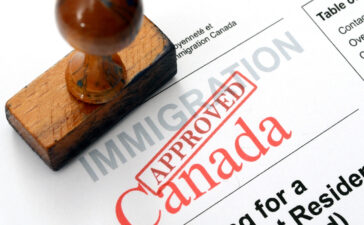Important Facts About Life in Canada
The country of Canada is not only a beautiful place to live, it is also a safe and friendly environment for immigrants. If you’re planning on moving to the country, here are some important tips.
Canadian Economy
Canadians’ economy is recovering, but the country is still facing challenges. While the country’s economy is on the mend, some regions have suffered significantly. The government is committed to providing support to as many Canadians as possible.
Canada has launched an Economic Recovery Plan, which provides direct support to businesses and Canadians. This plan is designed to help workplaces in all regions. It also supports the transition to a more sustainable and inclusive economy.
The Government of Canada and the provinces have been working together to stabilize the Canadian economy. Their plan is focused on helping businesses deal with fixed costs, and ensuring that no one is left behind. Throughout the plan, Canadians have been consulted.
Canada’s plan is one of the most comprehensive in the G7 and the G20. It includes a broad array of measures, from credit support to liquidity support.
Taxation in Canada
Taxation in Canada is shared by the federal government and the provinces. The taxation system in Canada is a complex web of regulations. The first tax imposed in Canada dates back to 1650. Customs and excise duties provided the bulk of federal revenues for fifty years after Confederation. Since the Second World War, the federal government has levied a number of taxes.
There are five major types of taxation in Canada. These are property taxes, sales taxes, personal income tax, excise taxes, and business tax. Property taxes are based on the real value of the property. In many provinces, machinery and equipment attached to the property is also included in the property tax base.
Sales taxes are not progressive in relation to consumption. They are used to raise money for public services, such as health care.
Newcomers Services
The federal government provides newcomers with a range of services to help them settle in Canada. These services can include information and orientation, employment, health, and social support. They can also assist newcomers with filing taxes and enrolling their children in school.
Getting a job is often a major concern for a newcomer. Employment services can include job search skills, matching services, and work placements. It is also a good idea to visit a local volunteer centre to find opportunities. Often, volunteering is a great way to meet people and build a professional network.
If you are a Canadian citizen, you may be able to receive settlement services free of charge. There are over 1,259 settlement services listed on the Immigration, Refugees, and Citizenship Canada (IRCC) website.
IRCC offers many different services to assist with settling in Canada, including pre-arrival and post-arrival services. You can visit their website or call the IRCC Call Centre for questions in English or French.
Accommodation
When planning a trip to Canada, it is important to make sure that you have a place to stay. There are a wide range of accommodations available in this country, and you will need to find something that is both comfortable and safe.
You can opt for a hotel or a temporary furnished apartment rental. These options are normally offered by landlords to international students. Depending on where you are staying, the price may vary.
If you prefer to live in a more private setting, you can opt to rent an unfurnished apartment. This type of accommodation will usually cost around $1,200 CAD per month.
You can also opt for a homestay. This type of accommodation will offer a private room and one to three meals a day. It will be a good way to get to know a Canadian family and learn about the culture of the country.
Health and Social Services
Health and social services in Canada are primarily provided through the provinces and territories. They help to improve the health and well-being of individuals and families. This includes services such as child care, counselling, and employment assistance. In addition, they also address social issues such as poverty, domestic violence, and oppression.
Health and social services in Canada vary in their coverage and delivery models. Some services are offered free of charge, while others require a co-payment. There are also some areas with waiting periods before people can access the government’s healthcare system.
Healthcare services in Canada are organized and funded by the 13 Canadian provinces and territories. They are overseen by the federal government. The healthcare industry is a large sector with a variety of services. These include hospitals, nursing and residential facilities, and public programs.




